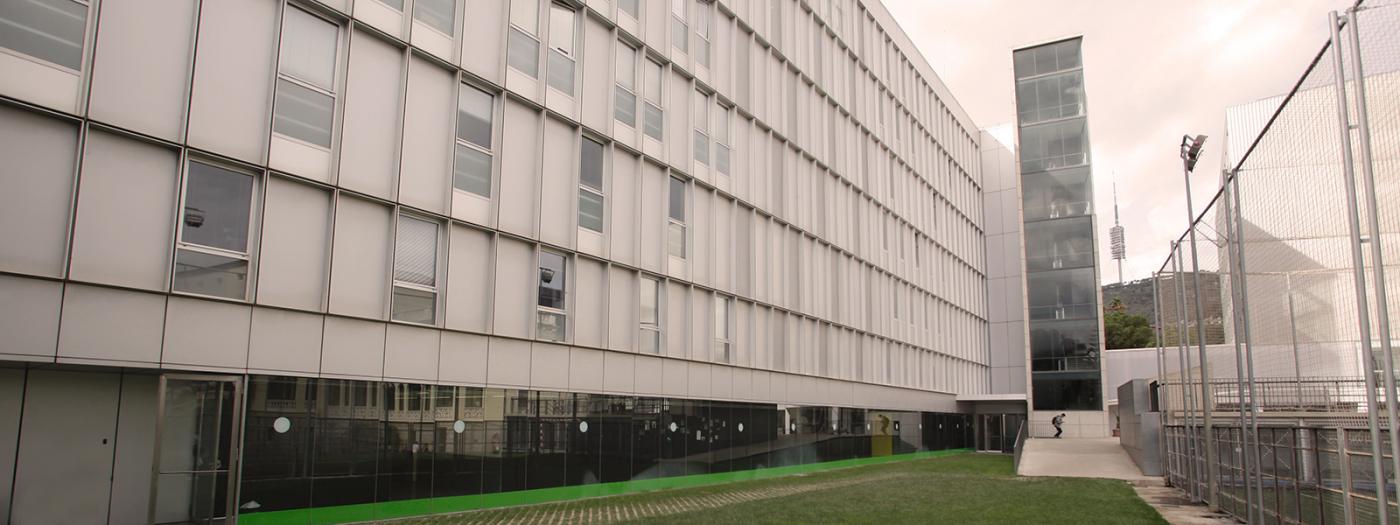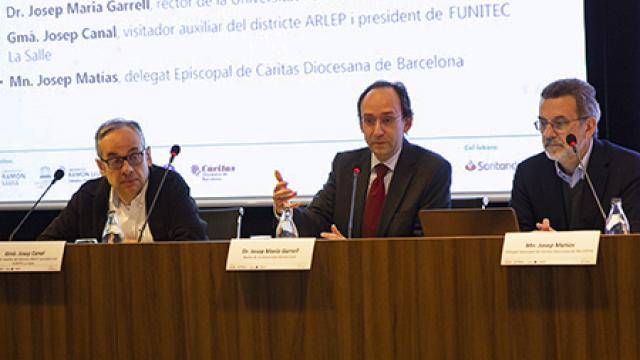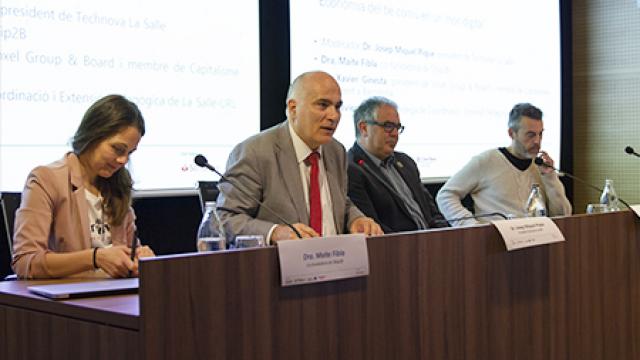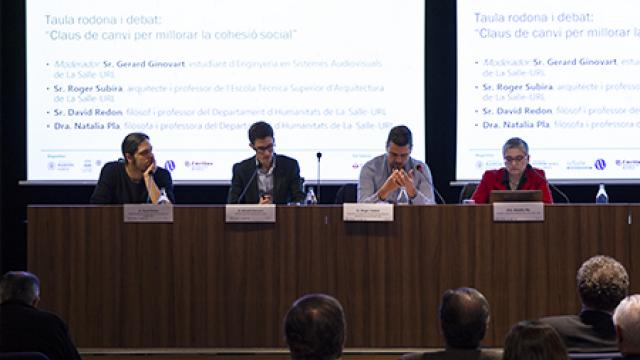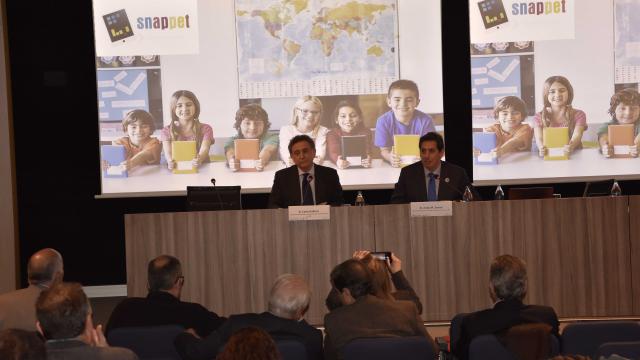Caritas-URL 2019 was held at La Salle Campus Barcelona, and the theme this year was "Inequality and social fracture". The event was inaugurated by the URL rector, Josep Maria Garrell, who was accompanied by the president of FUNITEC La Salle, Br. Josep Canal, and the episcopal delegate of Caritas, Mn. Josep Matías.
During the Conference, the rector insisted on the impact of educational institutions on society and the need to define the role the play and make improvements where necessary. In this regard, he encouraged the speakers and attendees to discuss what can be improved as social agents.
"10 m2 room for 4 people. No children accepted. You may have to leave the apartment at one day's notice." This is a real advert, and a clear example of the housing conditions of some of the people Caritas serves. Míriam Feu, Head of Social Analysis and Impact at Caritas, used her speech to talk about the social inequality and housing crisis Caritas faces on a daily basis as they try to guarantee access to housing.
High rental prices mean people with financial difficulties have to live in homes that aren't decent or dignified. She referred to the report "Home is key" that offers testimonies and explores the problems of homing exclusion faced by people this organisation helps.
Feu spoke of "a wound that doesn’t heal" to claim that the situation of inequality is a consolidated one. The most vulnerable people have suffered most intensely from the financial crisis. According to the survey of living conditions in Catalonia, the 20% most vulnerable people have seen an 8.5% fall in income since the beginning of the crisis, while the richest 20% have had an increase of 0.5%.
Likewise, Feu also recalled that the recovery is not benefiting people and homes in situations of severe exclusion. The latest report, "Analysis and perspectives" by the FOESSA Foundation, points out that since 2007 there has been a 40% increase in people in severe social exclusion in Spain as a whole.
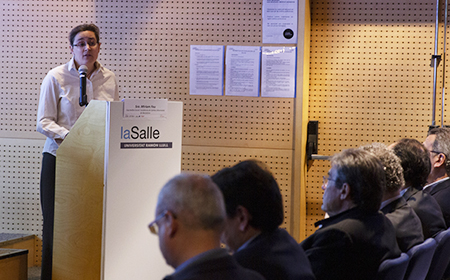
Keys for change to improve social cohesion
The seminar analysed some key change factors for social improvement, discussing proposals to alleviate some of the existing inequalities. The first debate discussed the rethinking of the city model, the important role of education and the role of women as the driving force behind social equilibrium.
Participants in the debate included three teachers from La Salle-URL (the architect Roger Subirà, the philosopher David Redon and the philosopher Natalia Pla), and the debate was moderated by a student from our Engineering in Audiovisual Systems degree at La Salle-URL, Gerard Ginovart.
Economy of the common good in a digital world
The second debate was moderated by the president of La Salle Technova, Josep Miquel Piqué, and was attended by the co-founder of Ship2B, Maite Fibla, the president of Voxel Group & Board and member of Conscious Capitalism in Barcelona, Xavier Ginesta and the Vice-Dean of Pedagogical Coordination and Extension at La Salle-URL, Xavier Canaleta.
Josep Miquel Piqué pointed out that digitalisation is transforming society and the economy, and said that “we face a challenge, that of the digital divide in the labour market, which must be tackled through education, with technological skills for the whole of society”. At the same time, Piqué added, “digitalisation has transformed the way we create businesses, and that’s why new forms of organisation are being developed”.
The event was concluded by the vice president of International Relations and Students from URL, Carlo Gallucci, and the general director of La Salle-URL, Josep M. Santos.
